Kerosine Flotation
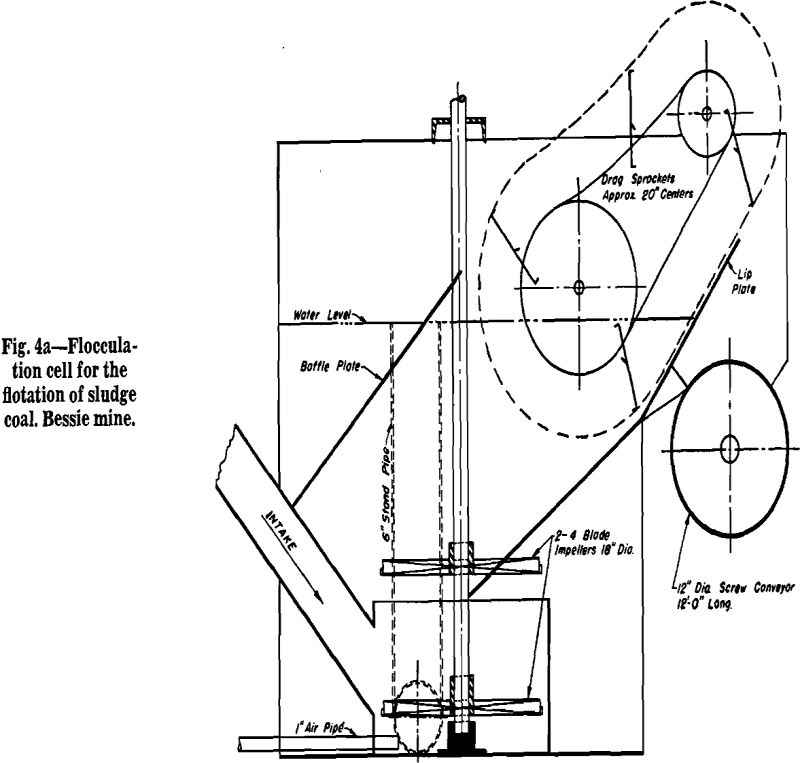
In cleaning coal it has long been recognized that methods which give excellent results for the coarser sizes may give poor or even no cleaning for the finer sizes. Effective cleaning of the fines, therefore, is usually a separate and distinct problem. For many years the problem of fines was considered of relatively minor importance. […]
Bowl Concentrators
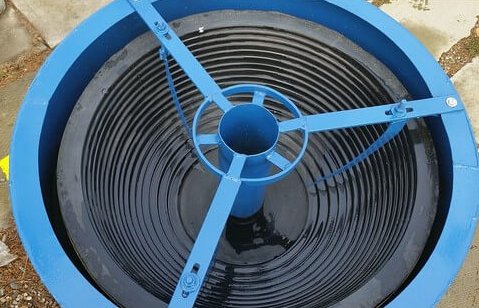
Bowl concentrators have been used only to a limited extent in small placer operations. The two most popular designs were the Ainlay and Knudsen bowls. There is little difference in design and operation between the two, except for riffle design and minor variations in bowl size and shape. They were used primarily as cleaners, but […]
Depolarizing Magnetite Pulps
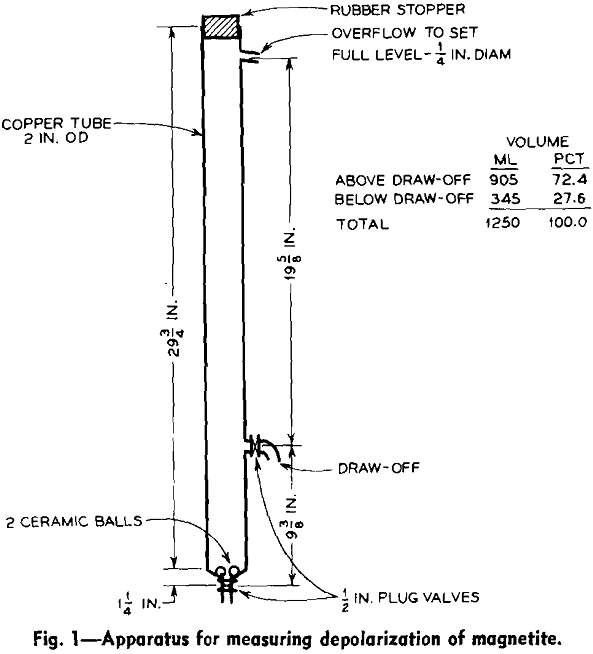
In classification of pulps bearing magnetized ferromagnetic particles, depolarizing is of great importance. If size separation is to be effective, particles must be individual rather than in flocs. Depolarizing is also practiced in heavy medium separations in which ferrosilicon or magnetite is the medium. Properties of Ferromagnetic Materials: Experimental work, described below, has shown that […]
How to Test the Strength of Rocks
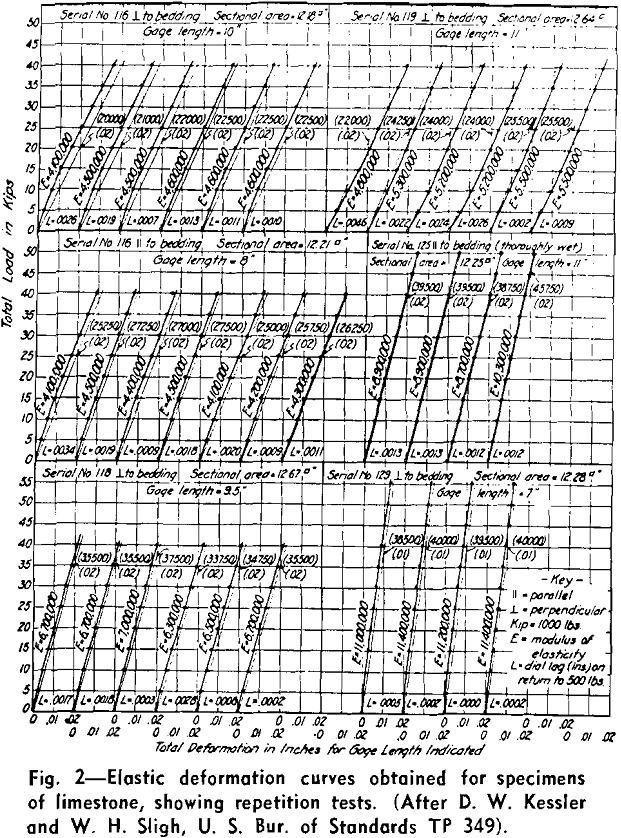
This paper reviews the progress made in testing the strength of rocks, ores, coal, salts, and other minerals as they are encountered in mine operations. It attempts to correlate the results of these physical measurements with technological properties more useful to the mining engineer: abrasive hardness, grindability, and behavior in comminution on one hand, and […]
Electrowinning
Electrowinning is defined as the cathodic deposition of metal, in this example copper, from a copper bearing solution by the passage of an electric current current using an insoluble anode. For copper the electrowinning reaction reaction is: CuSO4 + H2O ⇒ Cu + ½O2 + H2SO4 The overall reaction is the combination of two electrochemical […]
Centrifugal Forces Applies to Gravitational Classifiers
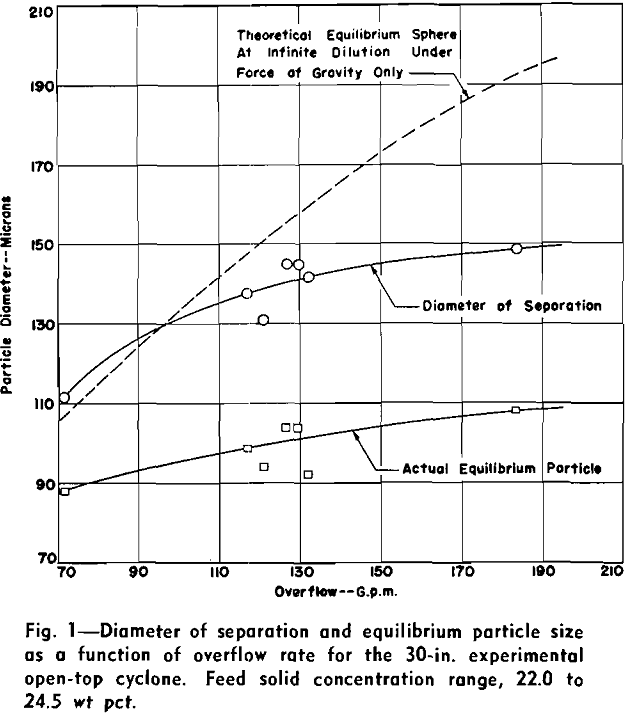
For many years gravitational classification has been employed as a basic tool in beneficiation of minerals and coal. While improvements have been made to increase efficiency and fields of application, the basic flow pattern has remained relatively unchanged in most gravitational classifiers. Feed slurry is introduced into a settling pool wherein the coarser solids settle […]
Ball Mill Capacity and Power Consumption Relationship to Mill Speed
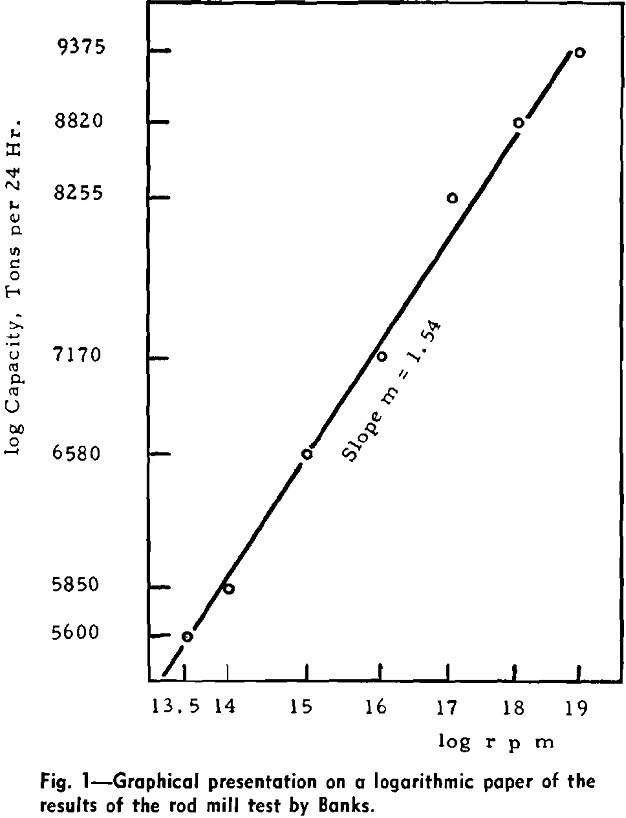
The accepted basis of comparisons between mills of different diameter is the percentage critical speed. If n = actual mill speed, rpm, nc = calculated critical speed, rpm, np = calculated percentage critical speed, and D = inside diameter of the mill in feet, In the following analysis capacity, T, is expressed in short tons […]
A Physical Explanation of the Empirical Laws of Comminution
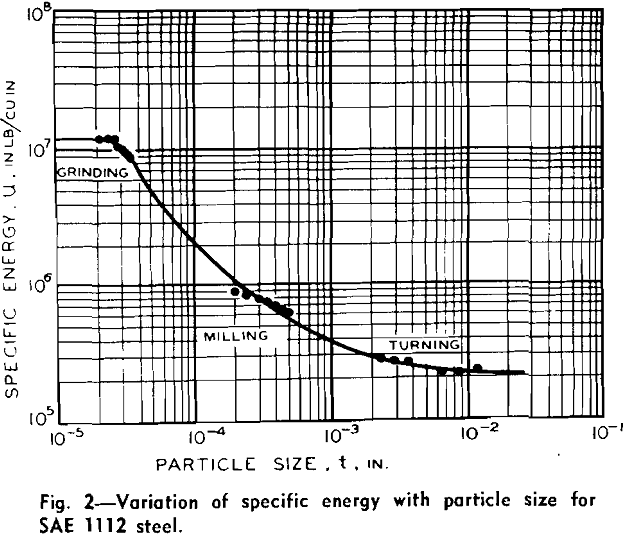
The laws of comminution of Kick and Rittinger have been debated for many years. Certain data obtained from ball mill and drop tests are found to be in approximate agreement with Rittinger’s law while other data would seem to support Kick’s law. In all these tests the energy required to produce a wide variety of […]
Molecular Interactions Between Frothers and Collectors
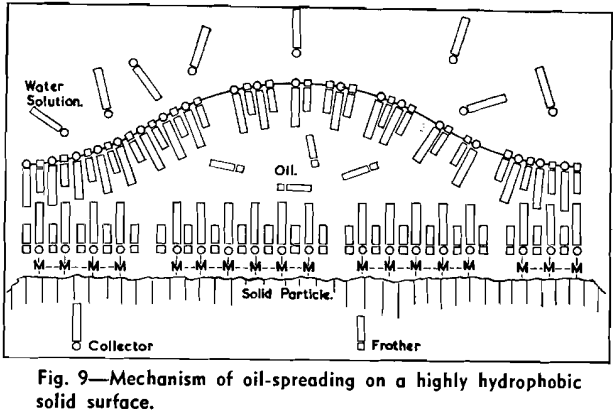
Froth flotation is usually effected by the addition of a collector agent and a frothing agent to an aqueous suspension of suitably comminuted mineral ores. The action of collectors is to adsorb onto the surfaces of minerals to be separated, sensitizing them to bubble adherence. The action of frothers has, in the past, been accepted […]
Theory of Comminution
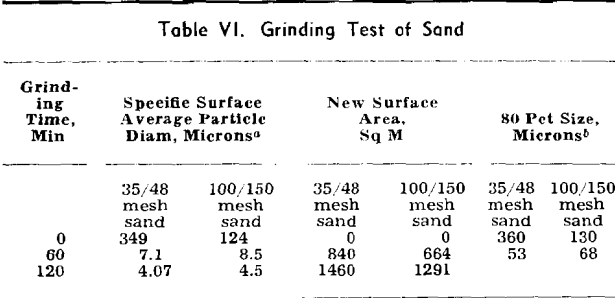
H. J. Kamack (E. I. du Pont de Nemours & Co., Inc., Wilmington, Del.)—Rittinger’s law usually is stated to the following effect: “The work (or energy) consumed in particle size reduction is proportional to the new surface area produced.” The law has been stated substantially in this way by Taggart, Berry, Dalla Valle, Coghill and […]
